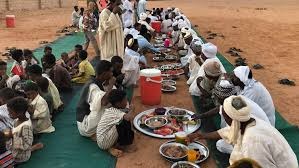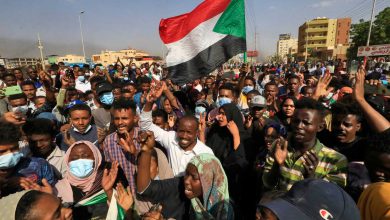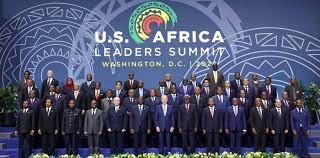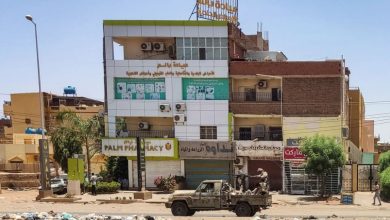Azhari Al-Mubarak: We are with the army until the last inch of the homeland is liberated, and I do not see a better job than this
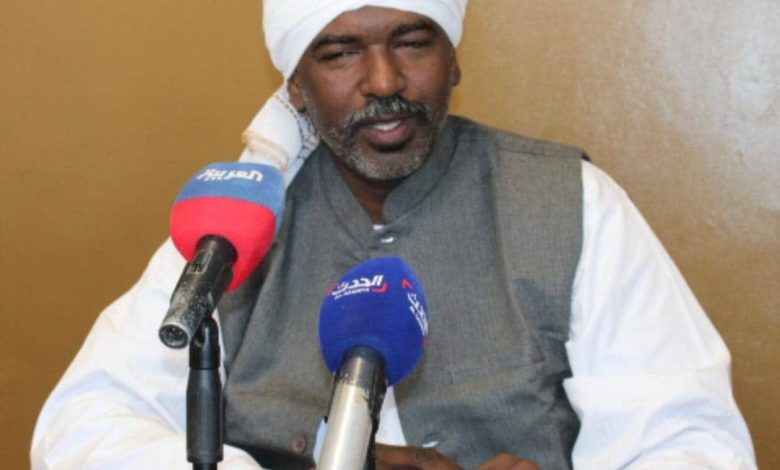
El Muhaqaq News has Longest and First Interview with Head of Popular Resistance in Sudan:
Azhari Al-Mubarak: We are with the army until the last inch of the homeland is liberated, and I do not see a better job than this
Interviewed by Abdullah Makki
Many Sudanese did not hear the name of Mr. Azhari Al-Mubarak ringing in their ears until his picture appeared in the media with the Assistant Commander-in-Chief of the Armed Forces, accompanied by news of his donation amounting to millions of dollars in support of the Armed Forces in the current Battle of Dignity. This alone was enough to attract the attention of the media and public opinion, and then it was not long before his selection was announced as head of the popular resistance, which occupied the people and the hearts of the Sudanese were attached to it, because it constituted an antidote to the rebellion and arrogance of the Rapid Support Forces (RSF) Militia.
“El Muhaqaq ” searched for Mr. Azhari Al-Mubarak among his family in “Al-Dabbah” and put the questions of the hour before him. He did not spare us the answers, thank you, and here we are putting our questions and the answers of Mr. Azhari Al-Mubarak in the hands of the readers.
Before you were chosen to head the popular resistance across Sudan, what did you provide to the Armed Forces Support Body in Al-Dabba locality?
Thank you for this interview and for incurring the hardships of traveling as you monitor and follow the news of the popular resistance.
We did what we could and were able to do, and anything we were able to do we did it, for example:
First: Support convoys for the armed forces, which included: various food supplies (sugar, flour, milk, calves, dates, etc.), and financial support. Our first convoy could have received about 250 million Sudanese pounds.
Secondly: There are medical convoys, blood donations, and supplies for the wounded.
Third: We visited the wounded and provided appreciated support to all the wounded (from the army, security, police, and emergency personnel).
Fourth: We provided the largest basket to the families of the martyrs, the wounded, the prisoners, and even prison inmates, and the families of the fighters, including officers and soldiers.
Fifth: We provided the necessary support to the sites and outposts of the armed forces and other regular forces.
Sixth: The Popular Body for Supporting the Armed Forces built a bridge and a trench to protect the Al-Dabba locality, and it has outposts at every gate.
Seventh: We have trained more than 27,000 mobilized in advanced training. The training camps amounted to about 80 camps, in addition to 7 camps for women.
What are the most important entities that participated in this support?
Many people think that this money came only from big businessmen. It is true that we contributed, but we say in all sincerity and honesty that the first to participate in this support were the citizens, without any exception, the farmers, merchants, owners of professional crafts, women, and youth. We walked for the people in their homes, farms, shops, workshops, and on the main street. Thank God they did not let us down, and we do not forget the people of the Popular Body to Support the Armed Forces, as well as the Chamber of Commerce.
There is talk of racial discrimination against citizens coming from western Sudan. How true is this?
This is not completely true. Our people from Western Sudan have been with us since before the war, some of them in our farms and shops, in government institutions and in the various regular forces, and some of them are owners of property, real estate, and commercial shops. Almost most of the transport companies are owned by Western Sudan people, and even those who came to us after the war, our homes were full. Then we opened schools and shelter centers for them, and some of them found work and settled and decided to stay and not return. For God’s sake, if there was racial discrimination or even harassment, they would not have settled with us for a single moment.
After the spread of these rumors, the investigation committee formed for this purpose came to us and heard directly from the people of western Sudan, and they were the ones who confirmed to this committee that these rumors were not true.
What is your vision for the future of the popular resistance?
The resistance rose to support the armed forces and will continue until the country is liberated from the rebels and any intruder and criminal who came to steal the land, spoil it, usurp the honor, and destroy the citizens’ property. That is why we are with the army until the last inch of the homeland is liberated, and I do not see any better work than this.
Does your candidacy not contain any racist or partisan dimensions?
Never, by God. The evidence for that is that my nomination did not come from the people of the North, but rather came from the states of Darfur and one of the states of Kordofan. As for partisanship, of course, I, thank God, and everyone knows, do not have any affiliation or association with a party, neither old nor new, and I do not like politics or political work, and I hope this war will end and we will devote ourselves to our agriculture, trade, and private work. I am already a farmer, and as you know, the farmers have nothing to do with politics. We are only associated to this land.
In your first speech after being chosen as head, you spoke about a road map for popular resistance. What are its most important features? .
I said it before and I’ll say it again:
The most important needs on which this roadmap is based are:
Strengthening and confirming the cohesion of the people with the armed forces through popular mobilization and moral and material support in order to preserve the country against ruin and division and to achieve the slogan (one people, one army). And if all our projects and programs work to achieve this, as it is the goal for which the popular resistance emerged.
There is talk about popular resistance weapons and handing them over after the end of the war.
Look, my son, we are working under the auspices and management of the armed forces, and weapons are distributed to the fighters under the full supervision of the army people. The day the war ends and we expel all the invaders and rebels, we will leave the weapons with us again. What should we do? We will hand over the weapons to the army and devote ourselves to our agriculture, our trade, and building and serving the country. No one is afraid of distributing the weapons because it was done in an organized manner and there is no randomness or chaos in this matter.
People who are afraid of distributing and collecting weapons will find another excuse for themselves. We rose to stop the sabotage and devastation, so how can we allow this with our weapons after the war ends and the country is secured!!
Will popular resistance really lead to civil war?
The popular resistance rose to stop the war, so how could it allow itself to enter into a war again, and then a civil war with whom? It is Sudan, all its people, tribes and Sufi sects, the notables of the country and the citizens are in one row with the armed forces against the enemy, so how did we stand behind the army and come to fight each other? This is a malicious rumor that is intended to prevent us from arming ourselves and defending our people, our land, our honor, and the unity of our country. I am certain, and take this from me: There will be no civil war because of popular resistance.
Structuring popular resistance at the level of Sudan and the states.. What is its significance?
Of course, this is for more arrangement and organization, and Sudan is a large country, with states, localities, administrative units, regions, neighborhoods, divisions and sub-villages, and a law will be issued to organize the work of the popular resistance, and a number of regulations and statues will also be issued.
Who will issue these laws and regulations?
Of course, the popular resistance is inclusive of all the people of Sudan in various specializations. We have jurists, lawyers, and administrators. A draft will be proposed to organize the work of the popular resistance, and it will be approved in the executive office and then submitted to the Supreme Council for Popular Resistance. The people of Sudan have great experience in organizing themselves.
There is talk that the popular resistance will be the political incubator for the next government. How true is this talk?
We have nothing to do with politics or political work. We are a popular armed resistance. Our job is supporting the armed forces with men and money and side with them until the last inch of the country is liberated. The day the war ends, we will return to our work, and then this rule will again be at the command of the people. Who is elected by the Sudanese people should rule. I cannot use my job to protect the country and stand with the country’s army to rule the people. My mission is to protect the country against division and collapse, and for whomever the Sudanese people like. The Sudanese people choose their rulers by elections, and whoever wins shall rule us and this means that it is the one liked by the people.
Last word
I call on the Sudanese people and businessmen in particular to build and rebuild the country. If we cannot rebuild this country, who will rebuild it? Personally, the Rapid Support Forces (RSF) called me and told me to leave this country, leave your projects, and travel, and we will compensate you many times over. I refused to leave the country, which is why dozens of vehicles and machinery that belong to me were burned in Khartoum, and more than 1,800 rickshaws and tuktuks down an entire factory for me, and there are also a large number of businessmen lost money, factories, real estate, and various property, and citizens lost their homes and savings, and even lost themselves and their families and were seriously harmed. So we say to them and others: We are staying in this country and we will not leave it.
As our job was to mobilize people to fight with the armed forces and support them financially, in kind, and morally, our slogan after the end of the war, God willing, will be (mobilization for reconstruction).
